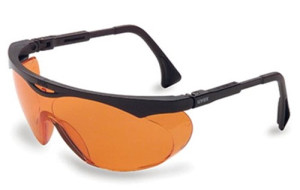
Advertisement
Many sleep experts are of the opinion that we should stay away from electronic displays for at least an hour before we go to bed – why? Research shows that electronic device displays stimulate brain activity and reduce our ability to sleep. The light from these devices effectively disrupts the natural brain activity that has evolved to facilitate sleep in accordance with the day-night cycle.
Blue Light Causes Insomnia - Research by The Rensselaer Polytechnic Institute of New York
What research has determined is that artificial light from these devices interrupts the processes in the pineal gland, which is the manufacturing centre of natural Melatonin, the sleep inducing hormone on which you rely not only for sleep, but for repair of the day to day damage that living does to your body.
Advertisement
Much of this research was done at the Rennselaer Public Institute in New York. You can access their official publication through the link I have provided here (there is a download available to the public).
The researchers, using volunteers, monitored their sleep patterns after using iPads, games consoles and other devices and measured the amount of light their eyes were receiving as they played and watched. This was a tricky experiment! What they found was that when the subjects used these devices for two hours at night, their melatonin levels fell by a full twenty two percent!!!
This is a major concern because, as I said above Melatonin is much more than a sleep aid; it is a substance replete with anti-oxidants that essentially have an anti-aging and bodily repair effect. Low levels can lead to increased risk if obesity, diabetes and many other disorders.
Blue Light and Melatonin Suppression
So why is it that these electronic screens suppress our melatonin levels? Further research has shown that is blue light that has the most harmful effect. Electronic displays of course have the normal range of light from low reds through to high blues to match what we see in the real world, but we hold these screens close to our eyes and the electronic emission is quite intense at close range.
Even normal in-house lights have a suppression effect on our bodies as they mimic daylight, convincing our bodies that it is not the time to increase melatonin levels for sleep. This is one of the reasons we can be utterly exhausted and still not sleep!
Can I Use My iPad PC etc and Still Sleep?
Yes you can – if you can find a way to reduce the amount of blue light reaching your eyes and brain! The answer to this riddle is a software solution called f.lux - which uses the time of day to adjust your display’s light emission spectrum (modifies the intensity of the colors). F.lux is available for iPads, iPhones, Windows and many other displays and devices. Once it’s installed, you have no further adjustments to make.
The Amber Goggle Solution

Of course, the other option is to use amber goggles that block blue light – but I tried this and felt a complete nerd all I needed was a tinfoil hat! But if you really want to try these, you can get them from Amazon!
How Important is Sleep?
So how important is sleep? There are many articles on this site covering that issue, but here are a few key points:
- cardiovascular disease
- diabetes
- depression
- workplace accidents
- depression
- memory damage
Estimates show that up to 95% of Americans use electronic devices during the hour before they go to bed. This partly explains why many years of research have consistently revealed that as many as 35% of American adults of both sexes - suffer from insomnia and related sleep conditions.
So how much sleep do we need? Again, research has shown that sleeping between seven and nine hours each night alleviates stress, reduces the risk of many chronic diseases, improves memory and assists with weight loss.
Dreams
Dreams reveal the stress and strain of our lives as we integrate the events of our lives during sleep. However, dreams are also heavily influenced by our audio and visual experiences - even the unreal ones that we view on television.
Our subconscious minds are really not capable of distinguishing between the reality of our lives and the fantasies that preoccupy us through the visual media. This can create severe distortions of the subconscious because the events we really should be concerned with and understand better can take a back-seat to solving the problems of some fantasy character!
I will have much, much more to say on this matter is a series of articles on dreaming. In the meantime, here’s the introductory article on dreaming that Ive already written.
Conclusion
- Blue light causes insomnia by suppressing melatonin
- Electronic screens radiate blue light quite intensely
- Normal light in our homes also suppresses melatonin production, but all we can do about that is to wear goggles – like the ones shown – you can get them at Amazon – for a couple of hours before we sleep. Few of us would fancy this especially watching a movie!
- If we don’t stop using our iPads and other devices at least an hour before we go to bed, we should try f.lux software to reduce the impact of these devices on our melatonin levels (free for Windows).
- A melatonin supplement can help by boosting the level of this sleep hormone in your body and compensating for our unnatural extended daytime.
 Click here to see if the Melatrol free bottle offer is still valid and get a really safe, unbroken night of restful sleep.
Click here to see if the Melatrol free bottle offer is still valid and get a really safe, unbroken night of restful sleep.

